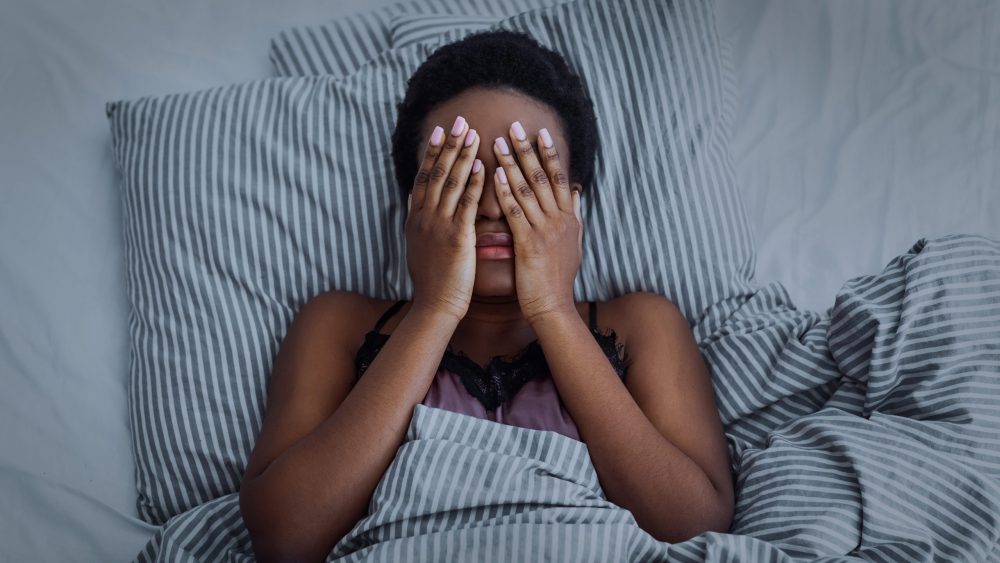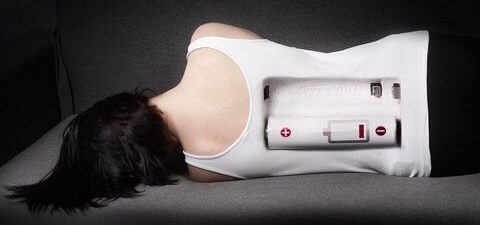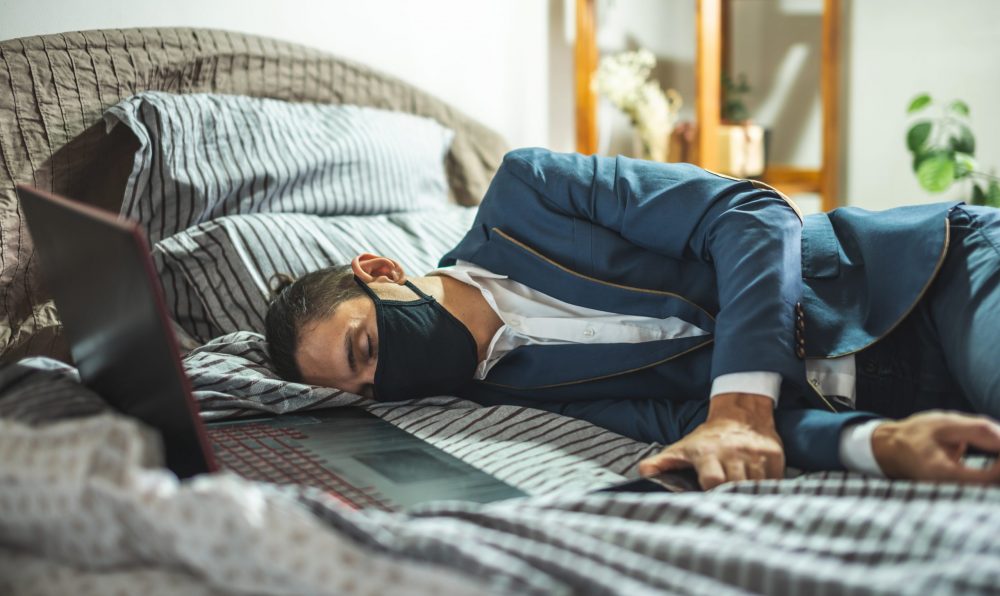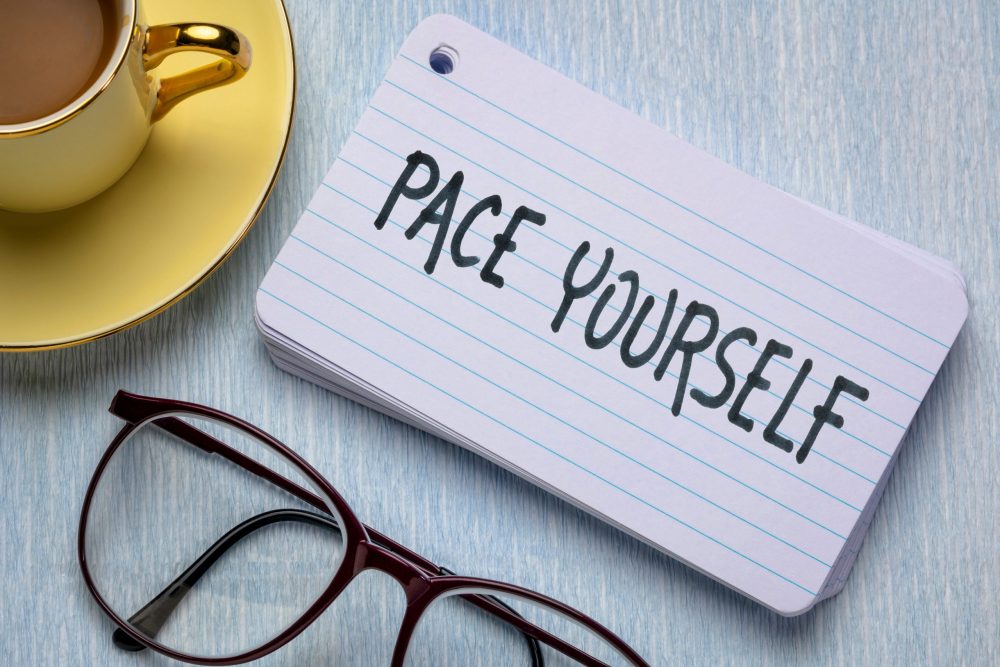Now live! RTHM Direct – simplified medication access for Long COVID, ME/CFS and related conditions. Check it out
For many people, recovering from acute COVID is only the beginning. Just when they think they are healthy and ready to resume their normal routine, symptoms of Long COVID develop. This leaves them, in some cases, with more symptoms and daily disruptions than they experienced with the acute illness. Some major symptoms associated with Long COVID, such as insomnia and severe fatigue, can occur due to changes and disturbances in sleep. However, before we can understand sleep disturbances with Long COVID, we must look at how the COVID pandemic affects the sleep patterns of just about everyone, not just those with SARS-CoV-2 infection. We also must look at whether changes in sleep are really at the root of the symptoms.
The COVID Pandemic and Sleep
As the COVID pandemic began to spread across the globe, our lives changed. Widespread mask mandates, lockdowns, business closures, working from home, and virtual learning, completely changed our usual routines. Unfortunately, these changes also affected “normal” sleep patterns, thus increasing the incidence of sleep disturbances. In fact, sleep disturbances became so common that researchers created the new term “coronasomnia.” As the stress of all these changes began piling up, many found themselves unable to fall asleep. If they did fall asleep, they were unable to stay asleep.
This type of sleep disturbance is not uncommon after a stressful event. In fact, an increase in insomnia cases was reported after the 9/11 attacks in the United States. In this case, the increased stress levels of the virus, possibly losing friends and family, the changes in your work or school routine, and the economic uncertainty are enough to keep your mind racing and sleep just out of reach. While this lack of sleep can increase fatigue during the day and affect your mood, it can also affect your health. Chronic insomnia increases your risk of weight gain, diabetes, and heart disease.
The good news is, as stress levels and the pandemic begin to improve, sleep disturbances are likely to return to normal. However, if you had the SARS-CoV-2 virus, even if you were asymptomatic, you could be at risk of additional sleep disruptions associated with Long COVID.
Sleep Disorders and Long COVID
While the focus has been on acute COVID and daily case counts, the acute infection is only the beginning. Long COVID, or Post-Acute Sequelae of SARS-CoV-2 (PASC), occurs when symptoms continue well past the normal recovery period of four weeks after acute infection. For others, acute infection recovery may occur only to develop the same or new symptoms within weeks. Symptoms can include those seen with COVID, but they can also include various other symptoms. These can include debilitating fatigue, insomnia, cognitive impairment, joint and muscle pain, and post-exertional malaise (PEM). In addition to insomnia, those with Long COVID can also experience different sleep disturbances, causing symptoms that include:
- Sleeping too much or too little
- Trouble falling asleep
- Frequent awakenings
- Trouble getting back to sleep
- Early morning awakening
- Trouble waking up after sleep
- Need for daily naps
- Irregular sleep cycle
- Unrefreshing sleep
- Debilitating fatigue during the day
But what is causing these symptoms and how do they relate to Long COVID? To get a better understanding, we take a closer look at the common sleep disturbances currently associated with Long COVID.
Insomnia
Increased insomnia has already been shown throughout the COVID pandemic, affecting both the general population, as well as those with Long COVID. In many cases, the insomnia continues to worsen after acute COVID recovery, leaving many with the diagnosis of chronic insomnia.
Increased Dream Activity
If you have experienced increased dreaming and disturbing nightmares after acute COVID recovery, you are not alone. This type of sleep disturbance is often common after a major event, such as the COVID pandemic, and researchers have established a connection between increased nightmares and COVID infection. In addition, they found increased rates of anxiety, depression, and post-traumatic stress disorder, as well as a connection between COVID severity and a greater incidence of nightmares. In many cases, these nightmares lead to insomnia and reduced quality of life.
High Occurrence of New Obstructive Sleep Apnea in Long COVID
If you can sleep but wake up constantly throughout the night or wake up in the morning feeling like you didn’t sleep well, research shows that obstructive sleep apnea (OSA) could be contributing to your fatigue. In fact, researchers are finding a high incidence of new OSA cases in those with Long COVID. OSA is the most common sleep-related breathing disorder. While you are sleeping, muscles in the throat relax and block your airway as you sleep. When this occurs, you can have episodes throughout the night when you stop breathing. You often awaken with the feeling of gasping for air. Increased snoring or new snoring can be an indicator of OSA, as can excessive daytime drowsiness or fatigue.
Myalgic Encephalomyelitis/Chronic Fatigue Syndrome (ME/CFS)
If you are experiencing chronic fatigue, reduced energy levels, or seem to get exceptionally tired or wiped out after minimal exertion, you may automatically think there is something wrong with your sleep. However, that is not always the case, and this is especially true with those battling Long COVID.
ME/CFS is a chronic multi-system disease that is often triggered after a viral infection. The most common symptoms associated with ME/CFS include unrefreshing sleep, profound fatigue, post-exertional malaise, and cognitive impairment. Recent studies have reported that as many as 46% of those with Long COVID meet the criteria for an ME/CFS diagnosis.
To learn more about ME/CFS, CLICK HERE
Sleep Disturbances Can Greatly Affect Quality of Life
In addition to other symptoms that Long COVID patients experience, sleep disturbances and the resulting sleep deficits greatly impact the physical and mental aspects of quality of life. Addressing these sleep disturbances is an important part of your Long COVID treatment plan and is something that we at RTHM address.

Get updates
Join our mailing list



